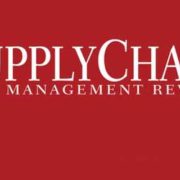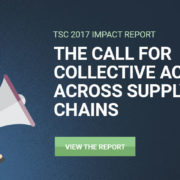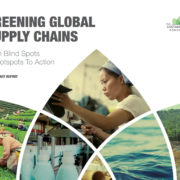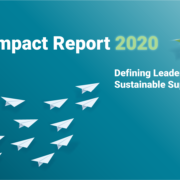When “I Don’t Know” is the Most Powerful Answer in Sustainability
Written by: Christopher Cooke, The Sustainability Consortium

Since 2009, The Sustainability Consortium has worked towards making the business case for the production of more sustainable consumer products. We have created systems and metrics that capture the rise of companies committed to increased visibility in their visible supply chains. But with the increase in suppliers using our surveys each year, we’re seeing a trend that is at first alarming, but ultimately hopeful. The most common answer to the questions in our surveys is “We are unable to determine at this time”. From the perspective of a metrics organization, this might seem like bad news. But, TSC has discovered that this seemingly innocent “nothing” answer actually demonstrates that growing movement of companies are making a commitment to sustainability even though all they can say now is “I don’t know”.
In 2016, over 2,000 suppliers used our product category sustainability surveys to report their progress to their retail buyers, up 25 percent from the previous year. The year-on-year growth in the number of survey responses suggests more companies see the importance of managing sustainability proactively. Additionally, there is a growing willingness among retailers to get more of their suppliers involved.
These suppliers represented over $200B in sales to their retailer partners and over 64,000 unique responses to our key performance indicators. More than half of those responses scored below 10%, over two-thirds of which were due to “we are unable to determine at this time” responses. But, the second most common score on our KPIs was 100%, proving that progress and leadership are achievable.
Why are there so few responses in the space between “we are unable to determine…” and 100%? It seems that once companies begin to assess an issue, they quickly progress to assessing it for all of the relevant suppliers, facilities, or products. And for some, the desire to improve their score will act as an additional incentive.
The silver lining is of course that companies are reporting even if it means revealing that they have significant room for improvement. They have received a clear message from their retail partners that sustainability is a priority. Although awareness and activity in sustainability for consumer goods is likely higher than it has ever been, it should come as no surprise that the most companies are still at the beginning of their sustainability journey. Leaders continue to lead and demonstrate the value and possibilities in pursuing sustainability. Many may be building the relationships, networks, and systems they need to be able to report in the future. But, how do we change the shape of this chart? How do we shift response away from “we are unable to determine…” to 5, 10, 50%?
We know that suppliers are working hard to improve their key performance indicator scores through creating the internal infrastructure they need to move forward: awareness, training and education, data collection, project management, supplier engagement, and improvement processes. Once the infrastructure is in place, suppliers are able to make rapid progress as they can address multiple sustainability issues at once, spreading responsibility and opportunity for sustainability throughout the organization.
Together, TSC, our members, and our partners can help and support suppliers to change these numbers and change the way they report them. Some already are making gains, others haven’t started yet. It is the call for collective action from retailers, suppliers, manufacturer, NGOs and everyone involved in creating more sustainable consumer products that will help us make real changes to these charts, bringing impact at scale to a system already set in motion.
You can learn more about our survey methods and the trends we’re seeing this year through our metrics in our 2017 Impact Report: The Call for Collective Action Across Supply Chains and through my upcoming presentation at Sustainable Brands New Metrics ’17 this Nov.

Christopher Cooke
Director, Technical Development
The Sustainability Consortium
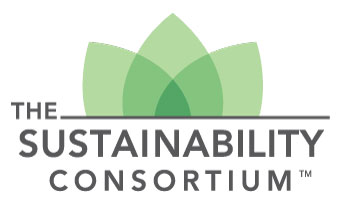

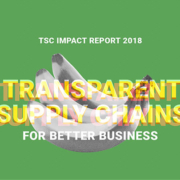 ©2018 Arizona State University and University of Arkansas
©2018 Arizona State University and University of Arkansas 